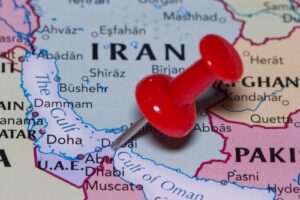Navigating the Unfolding Dynamics: Israel and Iran’s Tense Standoff

Recent developments in the Middle East have sparked heated discussions about a potential ceasefire between Iran and Israel, particularly in light of Iran’s reported willingness to negotiate nuclear discussions in return for a ceasefire. These issues are not just regional; they resonate deeply within global economic and geopolitical landscapes. Here at Extreme Investor Network, we are dedicated to providing in-depth insights that illuminate the complex interplay of these events and their broader implications.
Is Iran Seeking a Ceasefire?
Sources confirm that Tehran is actively engaging with key Arab states—Qatar, Saudi Arabia, and Oman—urging them to persuade President Trump to influence Israel towards accepting an immediate ceasefire. However, this situation is layered with complexities. While Iran projects a cautious front in its dealings, it remains entangled in a web of geopolitical strategies orchestrated by neoconservative interests.
The Role of Neoconservatism: A Cautionary Tale
The influence of neoconservatives cannot be underestimated in this scenario. Figures like Israeli Prime Minister Benjamin Netanyahu have long advocated for a hardline stance against Iran, framing it as a fulcrum of destabilization in the Middle East. Interestingly, the partnership between Netanyahu and influential neoconservative leaders, including Bill Kristol, further complicates Iran’s calculations. The message is clear: Israel’s military actions, which Netanyahu dubs as “changing the face of the Middle East,” are not merely about immediate conflict but have long-term strategic aims to undermine Iranian capabilities.
While Iranian Supreme Leader Ayatollah Ali Khamenei is known for his calculated approaches, there is an ongoing concern of alternative narratives where a false flag operation could skew perceptions of Iran, further heightening tensions.
The Economic Impact: A Ripple Effect on Oil Prices
The economic ramifications of this conflict extend beyond local borders. As geopolitical tensions rise, the Strait of Hormuz—vital for global oil transit—becomes a focal point. A potential Iranian move to shut down this critical passage could catalyze a significant increase in oil prices, affecting not just regional economies but the global market as well.
If crude oil prices continue on an upward trajectory, we might see them testing the $100 per barrel mark sooner than anticipated. Such developments could trigger widespread economic implications, underlining the interconnectedness of global economies in times of geopolitical strife.
A Broader Perspective: The Geopolitical Chessboard
What’s crucial to note is that the urge to destabilize Iran aligns closely with broader geopolitical goals that encompass not only the Middle East but also relations with Russia and China. The neoconservative agenda seems focused on drawing the U.S. deeper into conflicts that would further amplify tensions among global superpowers.
At Extreme Investor Network, we delve deeper into the implications of these developments—analyzing how the interplay between military actions and economic strategies can influence market fluctuations and investor behaviors.
Final Thoughts
As this situation continues to evolve, it’s critical for investors and policymakers alike to remain vigilant. Understanding the complex layers that underpin the Israel-Iran standoff can provide a clearer lens through which to view potential market responses and investment opportunities.
Stay connected with Extreme Investor Network for ongoing analyses and updates on these turbulent geopolitical developments and their potential impact on global economies. Knowledge is power, and in times of uncertainty, informed decisions are paramount.

